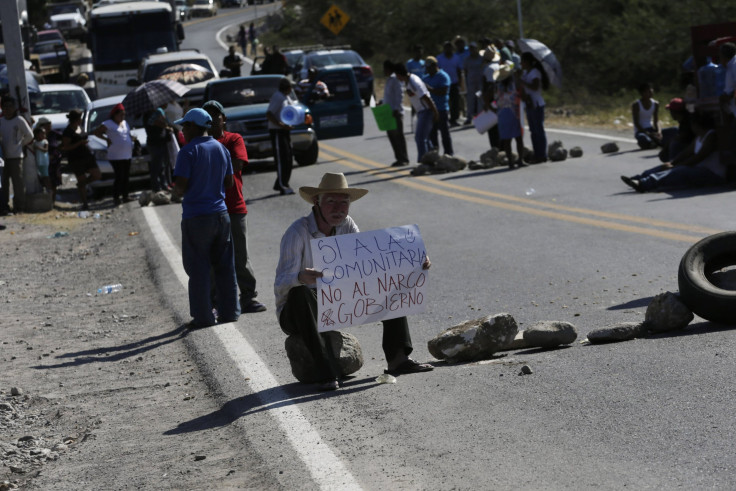
A top Mexican official acknowledged on Wednesday that he mocked indigenous people including the parents of the 43 disappeared Ayotzinapa students. Lorenzo Córdova Vianello, who oversees Mexico’s National Electoral Institute (INE) was speaking to a colleague in what he believed to be a private phone conversation when he made fun of peasant grammar used by indigenous leaders who had spoken to him in meetings concerning the missing students. It’s unclear who leaked the audio recording. In the recording, Vianello clearly mocks the manner of speech used by poorer, less educated Mexicans. Specifically, he made fun of the residents of the states of Guerrero and Guanajuato, who are disproportionately victims of cartel violence. He did not use any racial slurs. Here’s a rough translation of what his comments would sound like in English.
“I won’t lie, this bastard [who I was meeting with] actual talked like this [...]: ‘I chief of big Chichimeca nation. I come Guanajuato. Tell you and deputies we and I no allow yous’ elections.’”
A anti-government movement has threatened to shut down elections following the unbridled violence that has gripped the nation and involved politicians in all major political parties. Many are indigenous people in high conflict areas. Millions of Mexicans speak Spanish as a second language to their mother tongue, often one of the dozen of indigenous languages that are still alive today. Laws meant to aid indigenous speakers have been poorly enforced.
Cordoba also characterized his meetings with Ayotzinapa parents as “dramatic” saying to his colleague that the meetings would either make him either “very entertained” or “end up in a mental institution.”
At least 30,000 and as many of 100,000 people have died in the last decade to cartel-related violence. Analysts say that the violence was largely escalated because of government strategies initiated around in the late 2000s and continued by the current administration of Enrique Peña Nieto. While details are sketchy in the Ayotzinapa case, it’s clear that local government officials were involved in the likely murder of the 43 students, either by the bullets of police or those of a Guerrero gang allied with the mayor of Iguala. Many of those officials are now detained on murder charges.
For critics of the government, Vianello’s comments underscored everything that’s wrong with federal authorities. For Vianello, it was a cheap “gotcha moment” that was unrepresentative of his work. With elections in early June, he chalked the leak up as political sabotage. A public apology made after the leak was laced with accusation as he announced a federal indigment to prosecutor the originator of the leak.
“I would like to offer a frank and sincere apology to those who were offended by my comments, illegally obtained and leaked to the press [....] my respect of the rights of indigenous people and minorities has been as an academic and as a public servant. I have to say that [...] I lament that just a few days ahead of the [elections] people are trying to defame this grand institution, [the INE].”
© 2025 Latin Times. All rights reserved. Do not reproduce without permission.




